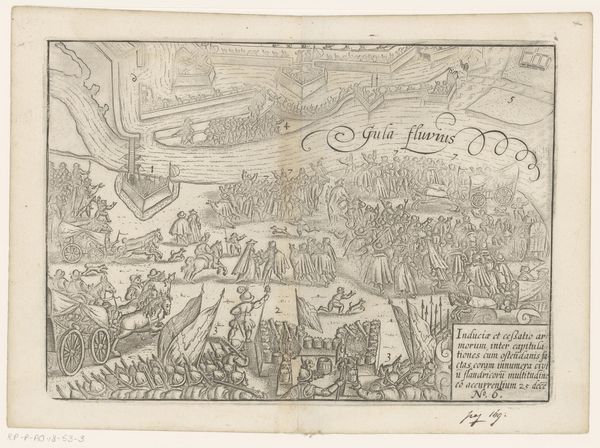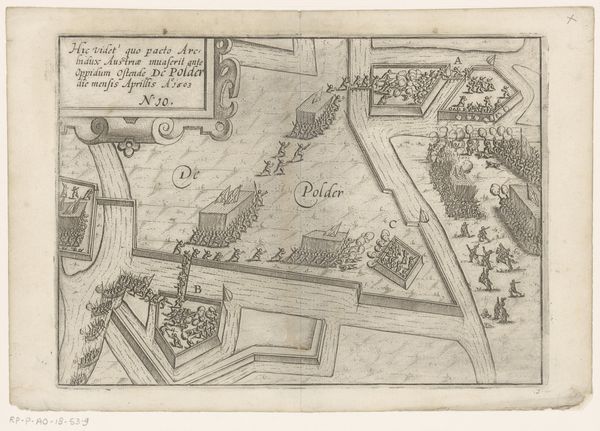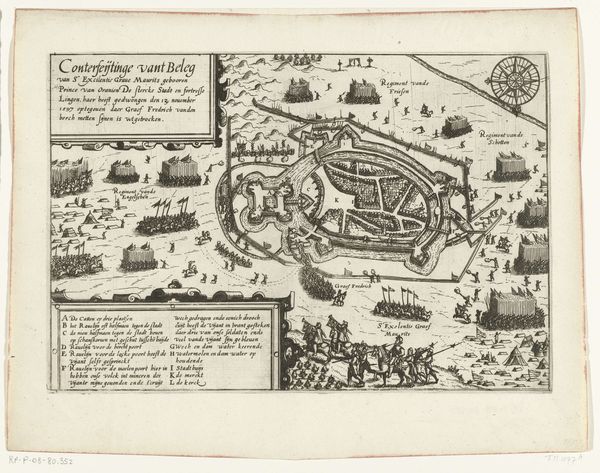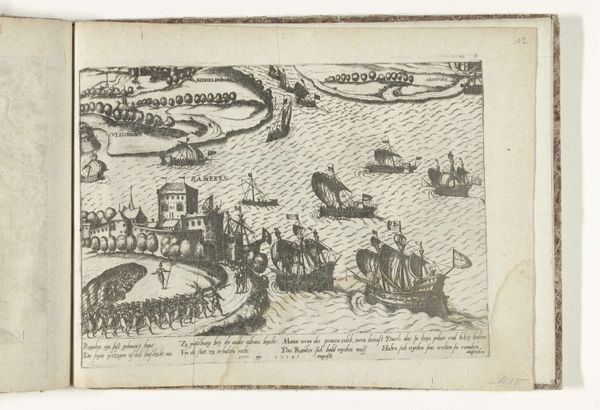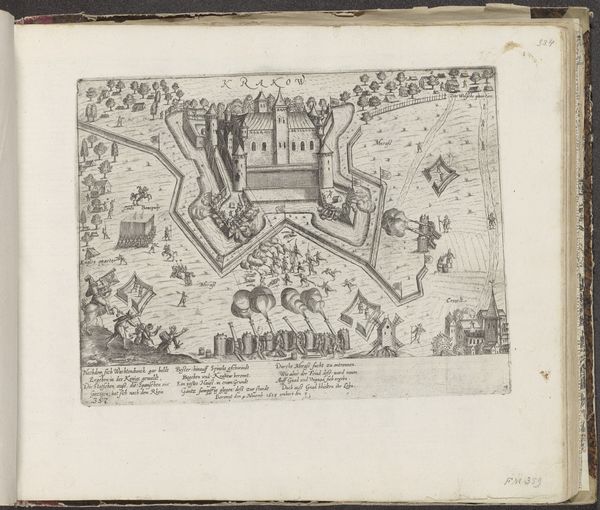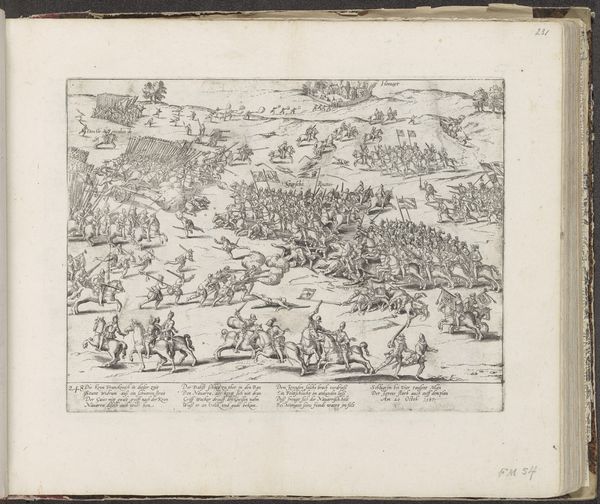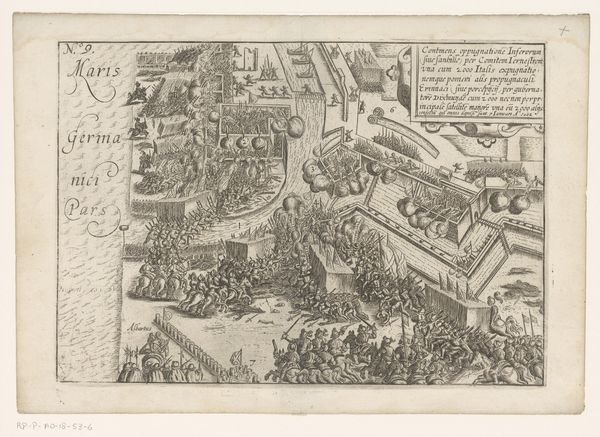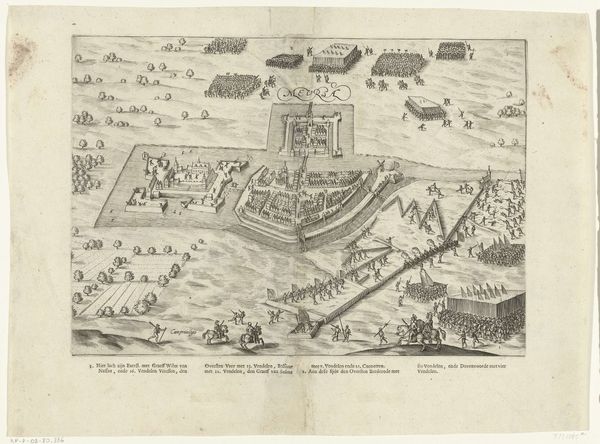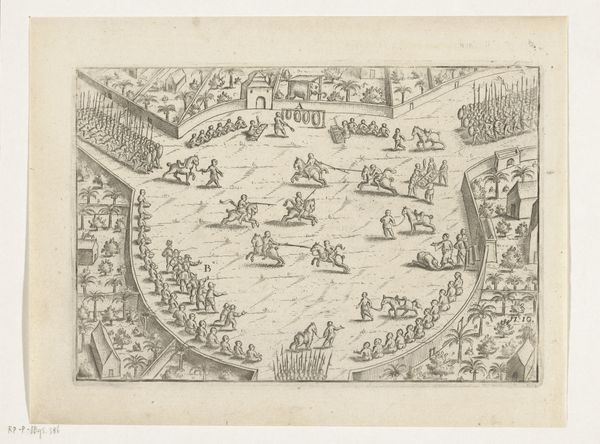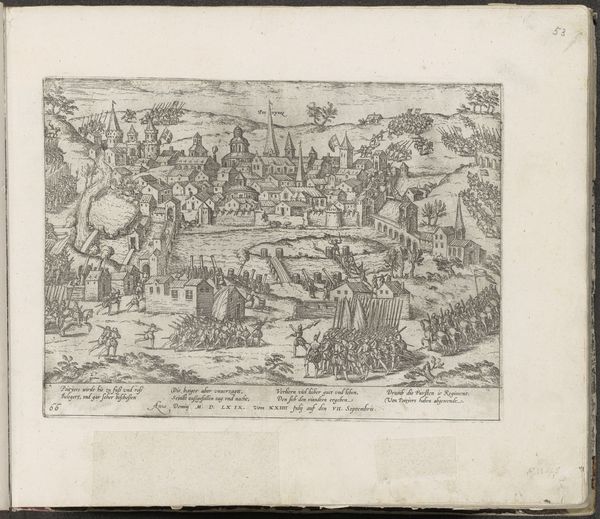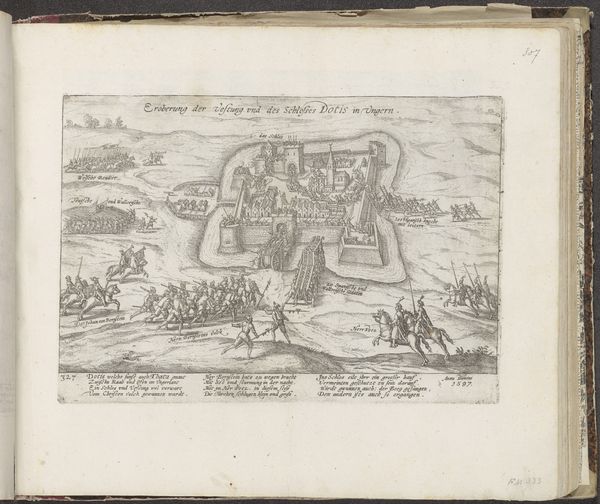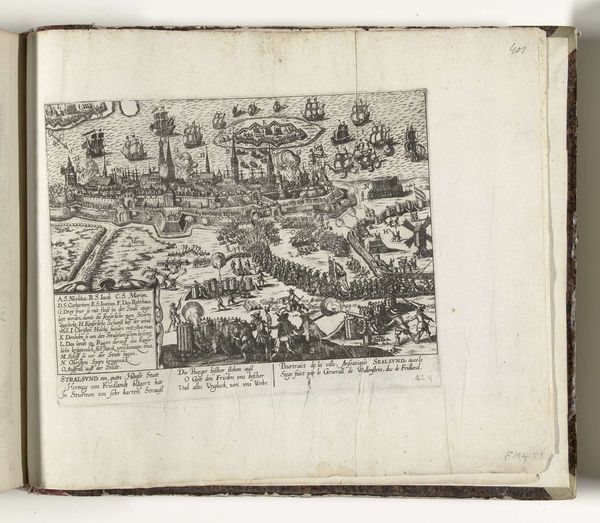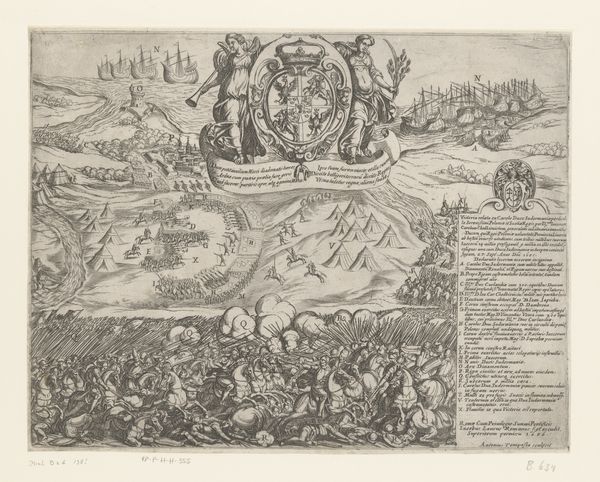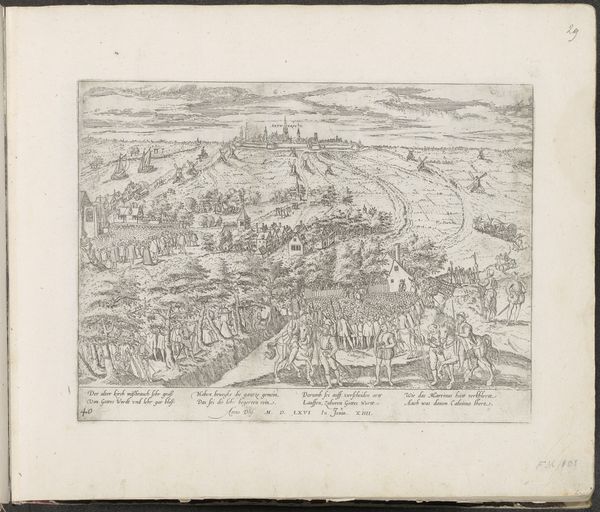
Beleg van Oostende: bestorming door Bucquoy op 7 januari 1602 1602 - 1615
0:00
0:00
anonymous
Rijksmuseum
print, engraving
#
narrative-art
#
baroque
# print
#
pen sketch
#
old engraving style
#
cityscape
#
history-painting
#
engraving
Dimensions: height 170 mm, width 241 mm
Copyright: Rijks Museum: Open Domain
Curator: Here we have an engraving titled "Siege of Ostend: Storming by Bucquoy on 7 January 1602," created between 1602 and 1615 by an anonymous artist. Editor: It’s fascinating how the artist captured so much detail in a print! It reminds me a bit of a map. It's quite diagrammatic, more focused on chronicling events than conveying a specific mood. I'm curious about your take on it; what do you see in this piece? Curator: The act of engraving itself is telling. Consider the labour involved: the repetitive, precise cuts into the metal, the inking, and finally the printing. It transforms the "heroic" battle into a mass-produced commodity. We're looking at the commodification of conflict itself. It’s also interesting how the process mimics a mode of reportage - informing a wider public while reinforcing a specific perspective. What sort of control over the narrative do you think the prints afforded? Editor: It definitely seems like a form of early media! Do you think that its purpose was purely documentation, or propaganda? Curator: Think about it. This isn’t just about documenting history; it's about shaping public opinion, using the repeatable image to solidify narratives about power and military prowess. The means of production, from the engraver's tools to the printing press, became tools for the propagation of particular political ideologies. Does examining its context change your initial reading of the piece? Editor: Absolutely! Thinking about the social and political environment in which this print was created sheds new light on its artistic and historical relevance. Thanks for pointing that out! Curator: And I'm glad to see you’ve started questioning the surface. Understanding art isn’t just about seeing, it's about considering the hands that made it and the world that consumed it.
Comments
No comments
Be the first to comment and join the conversation on the ultimate creative platform.
